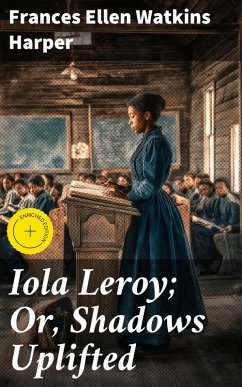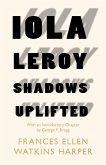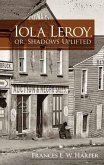In "Iola Leroy; Or, Shadows Uplifted," Frances Ellen Watkins Harper weaves a compelling narrative that explores themes of race, gender, and identity in post-Civil War America. The novel is notable for its rich character development and evocative prose, as Harper illuminates the complexities of African American life through the eyes of Iola, a woman confronting both societal prejudice and personal turmoil. Written in a realist style, the story integrates elements of romanticism and social critique, often reflecting the broader literary context of African American literature during the Reconstruction era. Frances Ellen Watkins Harper was a prominent 19th-century African American poet, abolitionist, and women's rights activist. Her experiences as a freedwoman shaped her literary voice, driving her to address issues of racial injustice and sexism. Harper'Äôs activism informed her writing, as she sought to amplify the struggles and aspirations of her community, thus positioning herself as a pivotal figure in American literature and social movements. Readers interested in the intersection of race and gender will find "Iola Leroy" both enlightening and poignant. Harper's deft storytelling not only serves as a mirror to the past but also invites reflection on contemporary societal issues, making this novel an essential read for those engaged in discussions around equality and civil rights.
Dieser Download kann aus rechtlichen Gründen nur mit Rechnungsadresse in A, B, BG, CY, CZ, D, DK, EW, E, FIN, F, GR, H, IRL, I, LT, L, LR, M, NL, PL, P, R, S, SLO, SK ausgeliefert werden.









